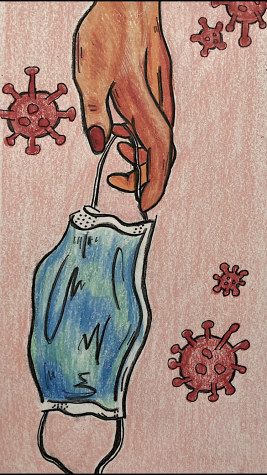All work and no play: Whitman’s new absence policies
February 2, 2023
Before the start of this spring semester, I knew I had to notify all my professors that I’d be gone the week after spring break for a trip to Europe with my former high school. I had planned and fundraised money for this trip for several years, which had been canceled twice because of the COVID-19 pandemic – the importance of this opportunity cannot be overstated. Yet, Whitman’s new absence policy made the process grueling and reinforced my belief that students should never be forced to explain to their professors why they need to take time off from school. As long as students show up to their classes and try to do well in their courses, they should have the right to ask for an excused absence without having to clarify the reason for their absences.
When an administration creates and enforces policies that limit the amount of outside support for students, they shift the burden onto students who are forced to advocate for themselves in order to receive necessary exemptions, such as time off from school. Whitman College is not immune from this gross misdirection of power.
On Jan. 13, Alzada Tipton emailed the Whitman community letting students know about changes to the college’s absence policy. These changes, made without consulting students, severely limited the nature of absences a student is allowed to have. Whereas the previous policy accommodated for students to take absences for family leave, jury duty and military leave, under Whitman’s new policy, instructors are only required to accommodate absences in four specific circumstances according to Tipton’s email:
1. Absences due to participating in a Whitman sponsored event, such as field trip, debate tournament or athletic competition
2. Absences so that the student may observe a religious holiday
3. Absences that are considered an accommodation under the ADA
4. Absences for the purpose of completing senior assessment
Crucially, absences due to illness, such as COVID-19, were omitted from the policy entirely. Many professors have absence policies that automatically fail students after missing more than three classes – however, individuals with COVID-19 must isolate for at least five days, with many continuing to test positive well beyond the five-day mark. How these new policies impact vulnerable, immunocompromised classmates and place undue pressure on students to go to class while ill has yet to be acknowledged.
In an email to The Wire, Tipton stated, “Given that the Dean of Students Office does not contact medical providers before it issues an excused absence for reason of illness, it was felt that having the student work directly with the instructor is more timely and involves only those two people who know the most about the class and the student’s status in the class.”
Some of my professors were reluctant to excuse upcoming absences, even though I provided extremely advanced notice. One professor restated the kinds of student absences that instructors must accommodate, telling me that they cannot count my absences after spring break as valid excused absences for their course. This just made the ordeal all the more frustrating for me.
If anything, the new absence policy has made me want to add more accommodations for students. I believe the policy should allow students to take some time off as long as they notify their professors well in advance and are willing to complete any work for those classes during their absence. In reality, as long as a student isn’t missing significant amounts of their classes, and they’re staying caught up with the coursework, then it shouldn’t be a problem to ask for some time off from school.





